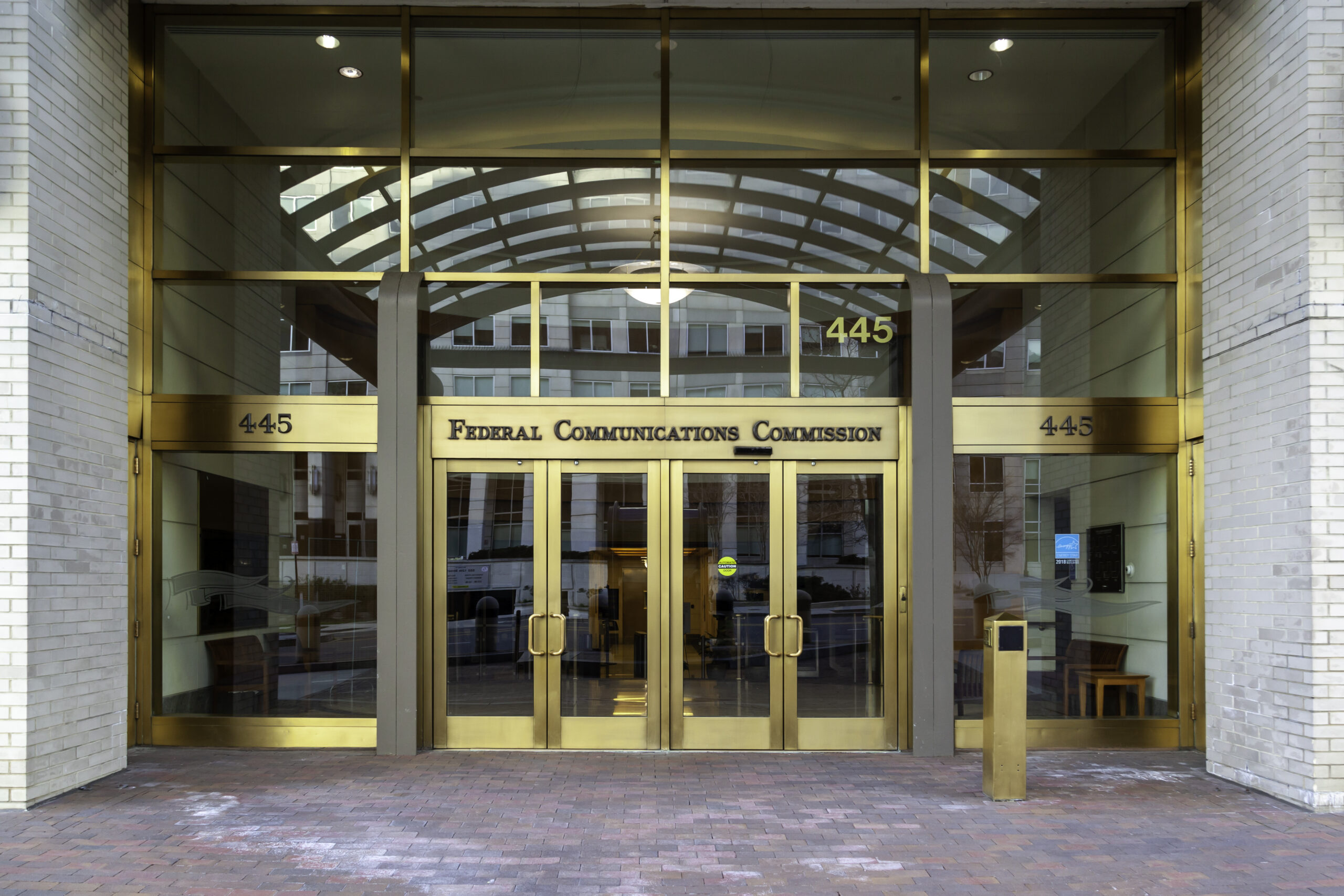Hearing on Section 1201 of the DMCA: Cause for Cautious Optimism?
Wednesday’s hearing in the House Judiciary Subcommittee on Courts, Intellectual Property, and the Internet on section 1201 of the Digital Millennium Copyright Act was simultaneously disturbing and encouraging. (A complete summary of the hearing can be found here.) It was disturbing because it revealed the conflation by some witnesses and subcommittee members of the effect of technological protection measures (“TPMs”) with the effect of section 1201’s ban on the circumvention of TPMs. It was encouraging because many subcommittee members recognized that section 1201’s prohibitions may be too broad and the rulemaking process for additional exemptions too rigorous.
A Little Bit of History
In September 1995, the Clinton Administration’s Working Group on Intellectual Property (chaired by Bruce Lehman, then Commissioner of the Patent and Trademark Office), issued a White Paper that proposed a prohibition on the production and distribution of devices that circumvent anti-copying technology. The policy rationale for the prohibition was a series of assumptions. The Working Group first assumed that the availability of legal copyrighted content would be a critical driver of the development of electronic commerce on the “National Information Infrastructure,” as the Working Group described the Internet. The Working Group next assumed that the ease of infringement that digital networks made possible would encourage widespread disregard of the copyright laws. The Working Group assumed that this threat of infringement would inhibit copyright right owners from making their content available in legal online markets. The Working Group further assumed that TPMs could prevent this infringement. The Working Group, however, recognized that TPMs could be circumvented. Accordingly, the Working Group supported legal remedies against the circumvention of TPMs. But the Working Group concluded that prohibition of the act of circumvention would be insufficient if the technologies that enabled the circumvention remained available. Thus, the Working Group also supported legal remedies against the manufacture and sale of circumvention tools. Without such remedies against circumvention tools, the legal prohibition on circumvention would be ineffective, which would render the TPMs ineffective, which would lead to widespread infringement, which would prevent the development of legitimate online markets for copyrighted works, which would inhibit the development of electronic commerce generally.
Putting aside the economic assumption of the importance of legitimate online content markets to the development of electronic commerce, this concatenation of assumptions contains a fundamental logical flaw. If people would disregard a legal prohibition on reproduction and dissemination of copyrighted works, why would they respect a legal prohibition on circumvention of TPMs or the manufacture and distribution of circumvention tools? In particular, why would they respect a legal prohibition on circumvention when they could readily access the circumvention tools—typically software—using the Internet? The Working Group on Intellectual Property should have recognized that in the digital environment, a circumvention law would be no more and no less effective than the copyright law itself.
Congress, however, bought the idea that a legal prohibition on circumvention and circumvention tools was essential to the war on piracy, and included the prohibition in the DMCA. Nonetheless, soon after a content provider would deploy a new TPM, a means of circumventing the TPM would be available on the Internet. DeCSS, a simple means of circumventing the Content Scrambling System (CSS) used to encrypt DVDs, was allegedly developed by a Norwegian teenager, Jon Johansen, aka “DVD Jon.” Notwithstanding efforts to suppress DeCSS using section 1201, DeCSS was (and still is) easily accessible throughout the world, including of course the United States. Millions of people used it to make unlawful copies of DVDs. Thus, section 1201 had little impact on the infringement of DVDs.
The Hearing
Even though section 1201 had little measurable impact on infringement, it did have a significant adverse impact on innovation and competition, as Corynne McSherry of EFF testified at Wednesday’s hearing. For example, section 1201 prevented the release of innovative products such as RealDVD, which would have allowed a consumer to store copies of her DVDs on her personal computer. Moreover, section 1201 prevented educational institutions from employing DeCSS to create compilations of film clips from DVDs for classroom use. After going through the burdensome section 1201 rulemaking process, educators were able to secure an exemption, but they have to renew it every three years in the face of rights holder opposition. EFF has catalogued many of the other harmful effects on security, innovation, and competition.
This is not to say that there is anything inherently wrong with TPMs, or that strong TPMs can’t prevent some infringing activity. Clearly, they can. And those TPMs obviously support certain business models. But it is a mistake to conclude that the TPMs are effective because of the legal protection provided by section 1201. This is precisely the logical leap made by Christian Genetski in his testimony on behalf of the Entertainment Software Association. After describing how TPMs have protected certain distribution models for gaming software, he asserts without evidence that “the DMCA plays an important role nevertheless, because having the rule of law backstopping these technologies sets the expectation for normative behavior.” It is unclear that an “expectation for normative behavior” actually has any real impact on infringing activity.
Congressman Deutch challenged Corynne McSherry’s assertion that the costs of the section 1201 outweighed its benefits by pointing to Christian Genetski’s description of how TPMs have helped certain distribution models in the gaming industry. McSherry correctly responded that Deutch was conflating the TPMs with section 1201. Even if a TPM did in fact assist a certain business model, there is no proof that that success is attributable to section 1201.
Congressman Collins then asked why couldn’t the problems caused by the section 1201 be left to the market; if there was sufficient demand for a specific lawful use, a copyright owner would find a way to satisfy the demand. This approach is problematic both as a matter of principle and as a matter of practice. As a matter of principle, if a law enacted by Congress creates a problem, it is Congress’s responsibility to fix the law. As a matter of practice, the market can’t respond to the problem because section 1201 is distorting the market. Section 1201 is preventing aftermarket competition or the development of innovative products or the disclosure of embarrassing security breaches.
Congressman Collins also suggested that the problem of the misuse of section 1201 had been successfully addressed by the courts. To be sure, appellate courts in 2004 had rejected the use of section 1201 to prevent competition in cases involving garage door opener remote controls and printer toner cartridges. But the Ninth Circuit in 2010 expressly rejected the reasoning of those decisions and found section 1201 liability in the absence of infringing conduct. Thus, there is a split in the circuits on this threshold issue.
Fortunately, the hearing also had its encouraging moments. Judiciary Committee Chairman Bob Goodlatte in his opening statement implicitly acknowledged that the assumptions on which section 1201 was based may have been flawed. “Copyright owners themselves have reevaluated the need for TPMs. For example, the music industry has in recent years turned away from widespread use of TPMs.” He also acknowledged that section 1201 had been misapplied:
As someone who was very active in the negotiating all of the DMCA, I’m not sure anyone involved in the drafting would have anticipated some of the TPM uses that have been litigated in court, such as replacement printer toner cartridges and garage door openers, so I am also interested in ways to better focus Chapter 12 on protecting copyrighted works from piracy, rather than protecting non-copyright industries from competition.
Congressman Issa opined that the Copyright Office clearly had made a mistake in refusing to extend the exemption for cell-phone unlocking, and asked whether it made sense for Congress to have to fix every mistake the Copyright Office made. Corynne McSherry responded that if Congress decided to retain section 1201, the better approach would be to amend section 1201 so that liability would attach only if there was a nexus between circumvention and infringement. (In yesterday’s oversight hearing of the Copyright Office, Congressman Issa asked the Register of Copyrights, Maria Pallante, whether many of the problems confronting the Copyright Office in particular and the copyright system in general were attributable to the elimination of copyright formalities, which in turn led to an explosion of the number of protectable works. Register Pallante agreed.)
Congressman Farenthold raised the broader concern that in a world where increasingly more physical products included software, copyright and license restrictions on the software could have the effect of diminishing ownership rights in the overall product. Corynne McSherry agreed, noting that section 1201 could have the effect of limiting consumer choice with respect to maintaining or modifying their cars.
Most of the subcommittee members in attendance agreed with Mark Richert, Director of Public Policy for the American Foundation for the Blind, that renewal of exemptions in the section 1201 rulemaking process was too burdensome. In yesterday’s Copyright Office oversight hearing, Congresswoman Lofgren asked Register Pallante to reconsider an illogical feature of the Office’s new procedures for this year’s rulemaking. The procedures state that a proposed exemption for unlocking should not be directed to all wireless devices or to all tablet, but instead should focus on specific categories of devices, such as all-purpose tablet computers, dedicated e-book readers, mobile “hot-spots,” and smart watches with mobile data connections. Congresswoman Lofgren observed that this sort of segmentation made no sense to Silicon Valley or to consumers. The ability to unlock a book should be the same regardless of what device the consumer was using at that moment.
Of course, the hearing contained the usual expressions of concern about the adverse impact of infringement on U.S. workers, companies, and global competitiveness. These expressions were belied by the testimony of the Entertainment Software Association and the App Association about the enormous growth of their industries in recent years. Moreover, as the Washington Post reported on Tuesday, Ernst & Young issued a report finding that media and entertainment firms have higher profit margins than the average for firms in the S&P 500, the London FTSE, and Japan’s Nikkei index. According to the report’s author, “digital is very much driving profits now, instead of disrupting it.” These findings are consistent with those of other reports showing that companies in copyright-intensive industries are more profitable than companies in other industries.
It is impossible to predict whether the Subcommittee will ultimately propose amendments to section 1201 after it completes its review of the Copyright Act. But the tone of this hearing was significantly different from that of the hearing on the other significant title of the DMCA, the section 512 safe harbors for Internet service providers. The message coming out of that March 13, 2014 hearing is that despite section 512’s imperfections, no one was willing to reopen it. In contrast, the message coming out of Wednesday’s hearing was that changes to section 1201 are needed, and the only question was whether the changes would be limited to the rulemaking process, or would also extend to section 1201’s substantive provisions.








